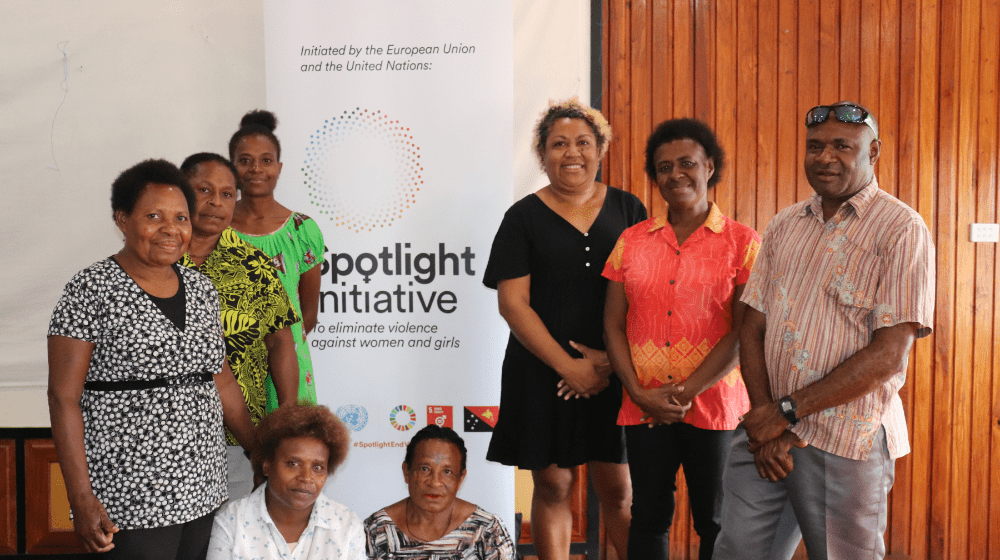For survivors of gender-based violence, sexual assault, and sorcery accusation related violence, health facilities must be accessible and have the appropriate tools to manage both their physical and psychological needs.
Seven social workers and nurses from the Momase Region joined a regional consultation workshop, facilitated by the United Nations Population Fund (UNFPA), in Lae, Morobe Province, to review proposed tools and ways of working (internal health referral pathways) that will strengthen and sustain quality medical and psychosocial care for survivors of violence.
The Standard Operating Procedures are guidelines on ways of working deliver quality health services to respond to GBV. These guidelines standardize the approach to caring for survivors. These guidelines also support the Provincial Health Authorities’ operationalisation of the Family Support Centres, the one-stop-shop for patients presenting with indictors of family violence, by reducing errors, increasing efficiencies, and creating a safe work environment for health workers and survivors.
According to a baseline assessment of Family Support Centres completed by UNFPA in 2021, 18,759 survivors of sexual violence and 20,609 survivors of physical violence were treated at Family Support Centres between 2018 and 2020.
One nursing officer from Maprik District Health Center said it is important for Family Support Centers to have a Standard Operating Procedures because it reaffirms the work that they are already providing and helps them to assess if they are doing the right thing and conducting the right kind of care.
“Apart from examining the patient and getting their reports, we also provide counseling. We are not trained for it, so it is timely for us to have a Standard Operating Procedure that can help reassure us and point us in the right direction,” said Sister Elizabeth Baga. She has been working with the Maprik Family Support Center for 12 years.
“With this SOP in place, FSC’s throughout the country can access basic funding to help our survivors with their referral pathways, especially those in the rural areas. GBV & SARV cases must be treated with the same urgency and importance as TB Cases or HIV/AIDS cases when it comes to resource mobilization and support.”
The FSC workers also shared their deep concern for their own safety and protection, as well as that of their clients, especially in communities where survivors are accused of lying by the families of the perpetrators.
“We face a lot of issues in our communities and the safety of staff is sometimes compromised,” said one health worker. “But we have to keep doing our job regardless. We need more training on how to do our job well, and how to handle the pressures that come along with it and how best to maintain our mental peace as well.”
The two-day consultation included a step by step review of the existing Standard Operating Procedures used globally and discussed how best to contextualize these for the day-to-day reality for Papua New Guinea and the FSCs.
The next regional consultation will be conducted for the Highlands Region in early 2023. This project is conducted through the Spotlight Initiative to end violence against women and girls, funed by the European Union.
If you or someone you know is struggling and in need of support, the 1-Tok Helpim Lain is open 24 hours a day, 7 days a week. Call for free from Digicel on 7150 8000.
About the Spotlight Initiative
The Spotlight Initiative is a global initiative of the United Nations which has received generous support from the European Union. Its aim is to eliminate all forms of violence against women and girls.
In Papua New Guinea, Spotlight is implemented by UNFPA, UN Women, UNDP and UNICEF across 11 provinces. The programme works to address gaps between legislation, sub-national institutions and service delivery, in addition to addressing the causes of violence in promoting behaviour change and respectful relationships. Spotlight was launched in 2020 and will conclude in December 2023.


